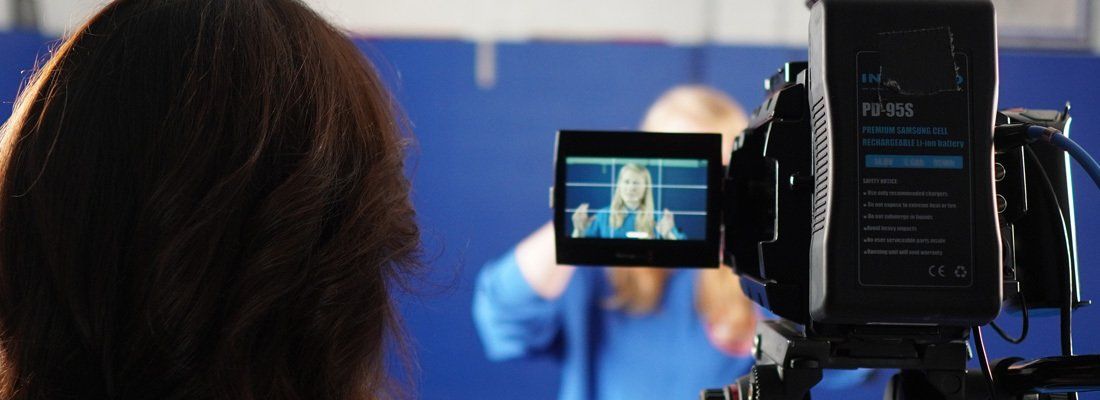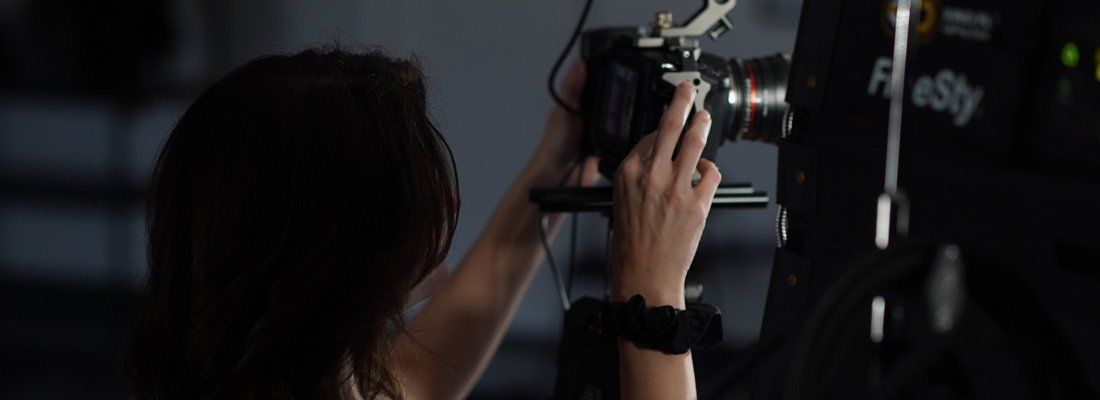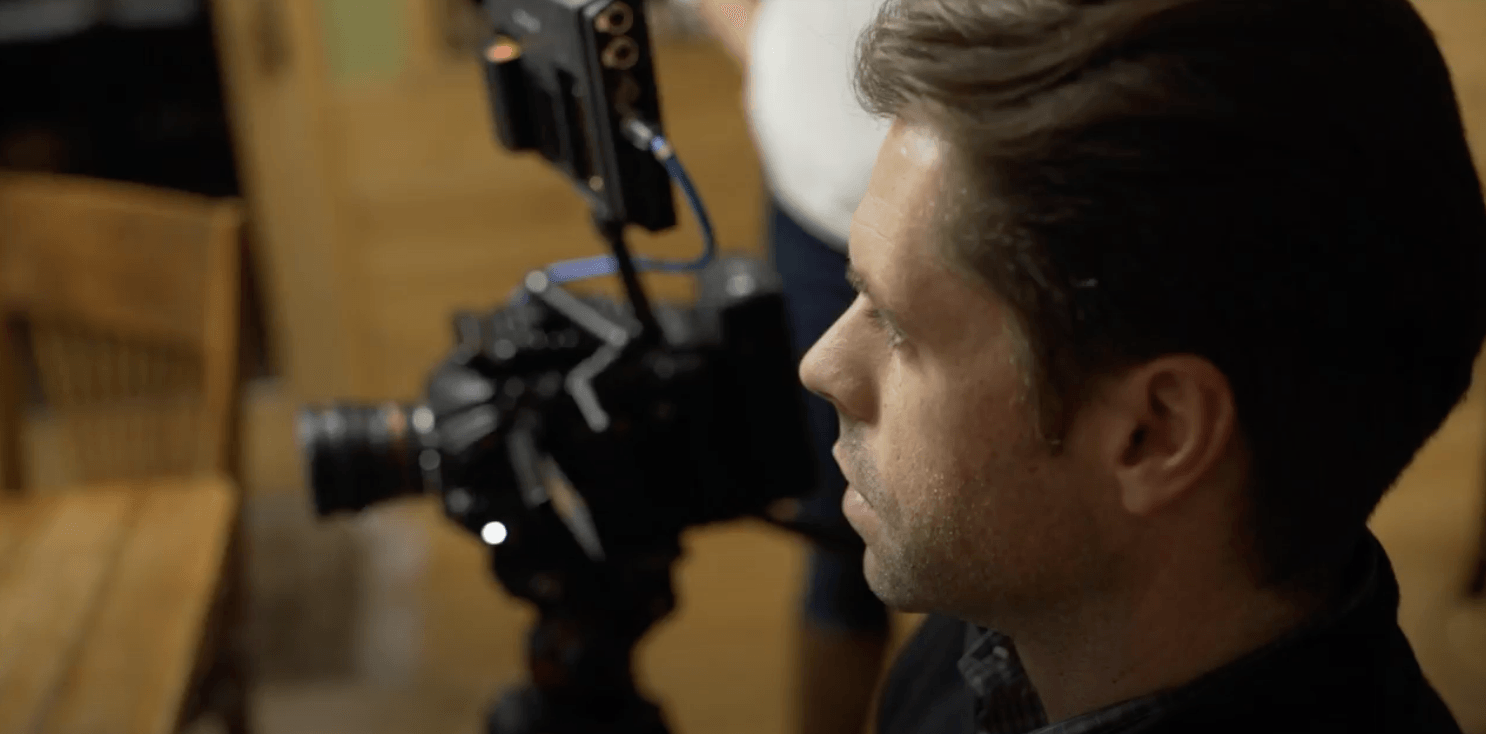Best Camera for Filmmaking On a Budget for Beginner Filmmakers
I get a lot of parents and students asking me what is the best camera for filmmaking on a budget. What kind of gear do I need? How much will it cost? How do I find the balance between investing in equipment and spending more than I need to? These are all great questions, and I promise, I will talk about the gear you can buy this year and for the upcoming holiday season. First, I’ve got to address the elephant in the living room.
Have you ever heard this Chinese proverb? “The best time to plant a tree was twenty years ago. The second best time is now.”
Ninety-nine percent of the time, new filmmakers I meet are scared, feel inadequate, and want to make sure they’re ‘doing it right’. I know this from experience. I used to obsess over my gear instead of getting my butt into the field, making my project, and learning from it. That, my friends, is a serious trap. I want to caution you against waiting to make your film until you have the perfect camera, lights, audio, location, actors, or whatever it might be that you are using as an excuse to hold back from creating. You want to know the best camera to make your first project? My answer is always the same.
The camera you have access to right now is the best piece of equipment for the job
Why do I advise this? I learned more from doing the work to create a film than I did from the years I spent studying filmmaking in the classroom. Filmmaking is a craft. It’s a hands-on art form. I can only learn theory in the classroom. Learning the craft means doing the work out in the field, making mistakes, and then learning from them.
Be Patient With Yourself
Am I saying that you are going to make an amazing first film? No, I am not saying that. Likely, your first film will be a benchmark for where you are at today- the beginning. What I am saying is that the best way I’ve found to improve my craft is to get into the saddle and ride the horse. Each project I create is bigger and better than the last.
Every time I produce a film, I learn and I grow. This goes for my projects as well as working for, or volunteering for, other people’s projects. There were years when I said YES to everything my friends did, just for the experience, and I would strongly recommend that for you too. I’ve also seen entry-level filmmakers in Hollywood spend tens, or even hundreds of thousands of dollars, on their thesis projects, because they hoped these stories would be a calling card for future work.
I have not, unfortunately, seen these investments fruit the career advancement my friends were hoping for. Remember, filmmaking is the most expensive art form you could possibly get involved in. Plus, the phone in my pocket shoots 4k video. Until you get to the point where you understand the business of film, and how to return your investment, my advice is always going to be that you keep overhead as low as possible.
Get Creative With Your Camera and Budget
My mom once told me to make do with as little as I could manage and see how creative I could get. I treat this as an exercise and force myself to think my way through the problem instead of throwing money at it. This is a solid place to start until you’ve got a couple of projects under your belt and you’re ready to make something that has a market that wants what you have to offer and is going to consume the content to recoup your investment.
Finally, I’ve found that the stories I have to tell have matured as I have. I’m accumulating experiences as I go through life, and that makes my work better as I age. I’m a better storyteller, with richer experiences to share, and more skill, every year. This is going to be true for you too.
Everything we go through in life becomes a deeper well that we can draw on as storytellers. We will get better with age. What does that have to do with your investment in gear? Nothing, actually. It’s important to know and to remind yourself while you’re on this journey. That all being said, I promised I would share with you my favorite gear to get you started. Let’s go over some options and then I’ll end with a couple of tips for what to invest in next.
Shop at Thrift Stores
I love thrift stores, and so do many of my friends. My sisters in thrift like to say, shop your closet first (or your friend’s closet). What this means for you, is that you likely have a 4k phone that you can use to start creating right now. There are three basic departments that need to be covered to make your project look great; video, stabilization, and audio. A couple of investments and upgrades will enhance your ability to record with your phone and make this a usable setup for video.
Budget Camera Stabilization
First, you’ll want some kind of stabilization. Since phones are generally very light, my recommendation is always to get a gimbal. This will replace your need for a tripod unless you do not have a dedicated shooter on your team. My gimbal is a DJI and I love it. The latest version that’s getting great reviews is the DJI OM 5.
This baby is compatible with most android and iPhones and collapses for convenient storage and travel to locations. The purpose here is to stabilize the image for static and moving shots, and what I love about gimbals is that they relocate the controls for recording and zoom to the handle of the gimbal so I don’t have to constantly be futzing with the screen. Good stuff.
Next, you’re going to need a solution for better audio with your phone. When I think about beginning filmmakers, I am going to shop for a mic that’s light, easy to use, and simple. My favorite companies for audio products are Zoom and Rode because they cater to indie filmmakers who need to move quickly and want the best quality for their investment. For those guerilla filmmakers shooting on their phones, I’d point you to the Rode Video MicMe C Directional.
This mic plugs into a USB C port, is super lightweight, and records in a cardioid (heart-shaped) pattern which is great for newbies who want to point a camera at their subject and get great audio. Add bluetooth headphones to ensure you’re getting great audio and BOOM, you are a one-human show (did you catch that mom joke?).
Buy Budget Used Cameras
Another great way to gear up and save money is to shop used gear online. I love buying all sorts of things used, so this is an option I’ve leaned into for years. It’s actually a joke in my family because I come from a long line of yard sale enthusiasts and my husband loves to fix things up. First, I’d say to start local. The filmmaking groups I follow on Facebook are always listing used gear. This is a great way to connect with the community, support local artists, and begin the outreach process that will be vital to finding crew for upcoming projects.
I also have plenty of experience using Borrowed Lenses and they are frequently selling used gear at a discount. Looking at their inventory today, they have a range from the DJI Osmo Action 4K Camera starting at $124 for Black Friday to the RED Scarlet-W 5K Dragon Sensor for $7,275. I like this company because the gear is inspected and backed by a guarantee and if something isn’t right, I can return it. Plus, I can read all the filmmaker reviews to see how people liked the gear and figure out the pros and cons right there on the site.
Kino Flo
Another company I love is Kino Flo. I recently bought the lighting kit of my dreams from Kino Flo and they also had a terrific used gear section that saved me a ton of money. Remember, there are three key elements to your package that you’ll want to start with; camera, audio, and stabilization. I’ve chosen not to list lighting yet because there are so many great ways to start creating before sinking your savings into a lighting kit. I know you’ll want to acquire light in the future, however, let’s start with the basics and work from there.
Trade With Other Filmmakers
I’ve got one more cost-effective solution for you to try before you spend your money on new gear. This is a tried and true method that I’ve used for nearly two decades now and it works on SO many levels. I trade my skills, my time, and the gear I have with other filmmakers. Yes, it’s that easy. The benefit of trading with other filmmakers is endless. First, I’m on set with all the assets they have worked so hard to bring to the table. I once day played on a Rob Zombie set, Witches Of Salem, just to learn about the grip and electric department. I watched Brandon Troost light with a few studio lamps and mostly practicals. This has shaped my approach to cinematography to this day.
Volunteer
I also volunteered on set to shoot the behind-the-scenes of Night of the Little Dead for Frank Ippolitto and Zeke Zebrowski. They had dozens of Hollywood pros working with them and I was the one interviewing Penn Jillette and Adam Savage. So down the road, when I needed a shop to help me build the sculptures for the fantasy realm I created for I Like Big Books and Rising Sun, Frank let me work in his studio and connected me to even more incredible artists.
It was on the set of I Like Big Books that I met Adam Cushman, the director whom I produced for three years before leaving Los Angeles. Together we worked with Eric Roberts, Dana Ashbrook, John Hensley, and many more.
Getting to set, even in a volunteer capacity, will create a ripple effect in your career. Take every job seriously, always be professional, and you will draw people to you who will do the same. Say I’ve got a camera, but no audio gear. I will lend my camera work to another filmmaker who will then come run audio for my next project. It’s a beautiful circle of life and I cannot recommend this strategy enough. Grow your community, increase the production quality of your work, and get exposure to talent you’ve never met before. Win, win, win.
Great Budget Cameras To Consider
So you’ve saved up some money and want to buy a new camera? I’ve got two suggestions to consider. First, I have always loved BlackMagic. While Canon is known for changing the game in 2009 with the D7, BlackMagic released their first Pocket in 2012, and the indie filmmakers of the world rejoiced. The cameras are all sold with the DaVinci Software that BM acquired in 2009, and the company has become known for exceptional quality and color at very competitive prices.
I currently own two BlackMagic Cameras, the 4k Ursa, and the 6k Pocket released in 2019. Both are EF mount, so all my glass from my Canon set up, and my Rokinon Cinema lenses, work with them seamlessly. I love how easy they are to use, how relatively lightweight the Pocket is, and the quality of the image in the post.
These cameras are cinema-grade and together they create a powerful indie package I can take anywhere. If you’re shopping for a camera body that is 2k or less, start with the Pocket 6k EF.
Consider please you will also need to budget for; batteries, cards, cables, a frame, and a monitor. That’s just for the camera and doesn’t include the tripod or the audio. Not to mention storage for your final product. Woof. Keep reminding yourself that you have picked the most expensive art form on the planet and refer to my earlier suggestions for cost-effective ways to grow your craft.
Sony Budget Cameras
Secondly, we’ve got to talk about Sony. To be completely transparent with you, I have never owned one of these cameras. However, I have day played with my good friend and fellow filmmaker Oly Mingo many times and love the setup he has. It’s a classic DSLR camera with great stabilization, color, and an easily navigated menu. Here’s what Oly has to say about replicating his system;
1) Start with the Sony A7 at $2500 if you can afford it. Keep in mind that you will need at least another $2,000 to $3,000 for the cards, batteries, accessories, and lenses if you’re buying everything new.
2) If that’s too steep, drop down to the Sony A7 III with the 24-70mm stock lens. This will give you 4k, full-frame recording, and room to improve the kit by upgrading your lenses as you go. Keep in mind that you will still need the cards, batteries, accessories, et cetera.
3) If you don’t have $3,000 to start your kit, refer back to options 1, 2, and 3 above. Love the cameras I’ve suggested and don’t want to spend the money to own a brand new one? You can always buy used from other local filmmakers or from online retailers.
Best Budget Camera for Beginning Filmmakers Conclusion
Remember, filmmaking is a combination of multiple different crafts and skillsets. Yes, I can be one of the wizards who run audio while they manage the camera. I can also spend an entire lifetime hyper specializing in one department. Both options are valid. If I really want the best production quality, I have to delegate. This can help spread the burden of investing in gear, as well as managing tasks on set.
My top advice is always going to be to use the gear you have access to right now to create today. Barring that, buy used, and find filmmakers who complement your kit and skill set to trade with, to grow your community. Don’t forget that in addition to the camera, you’ll have storage, accessories, tripods, lenses, audio, and someday lights to manage. Explore Blackmagic and Sony when and if you do have a budget. You can scale the amount you invest with both brand to create really terrific options for your projects. If you have money, or if you’re just starting out, find people who love to do the things you don’t. The game of filmmaking is the most fun when played as a team sport.



